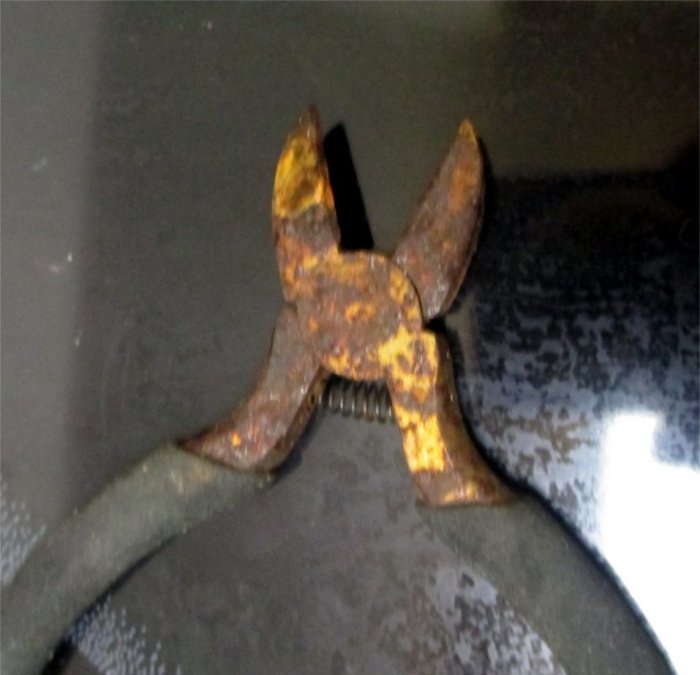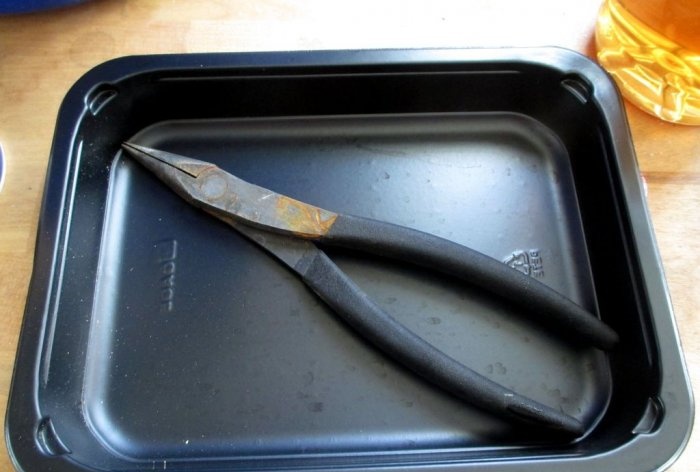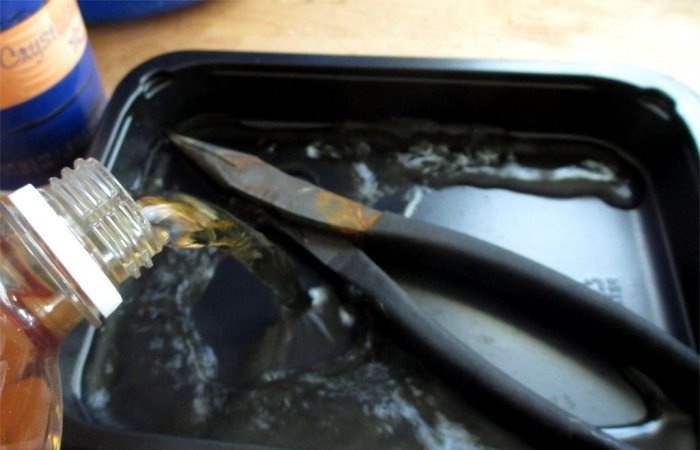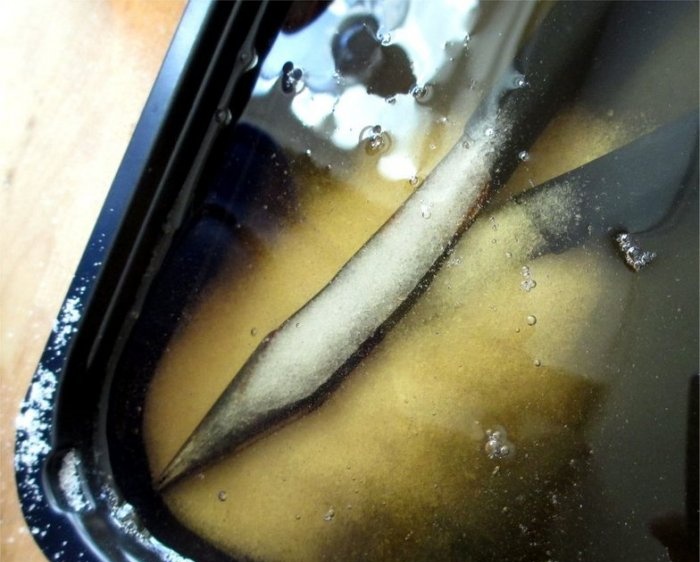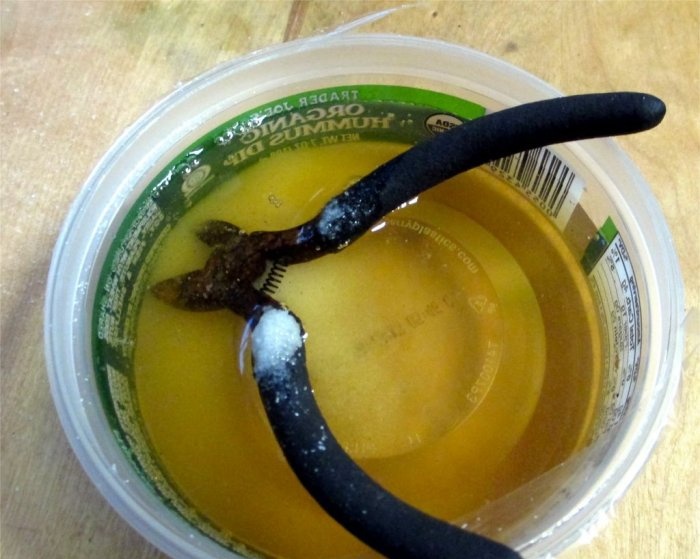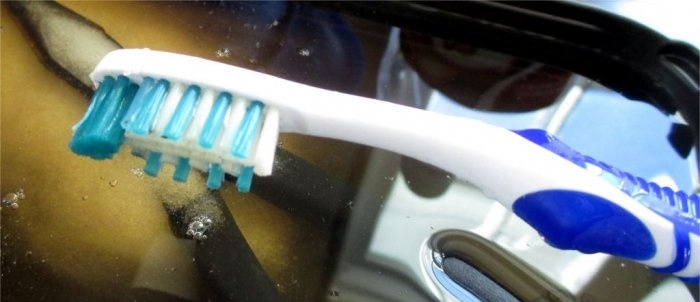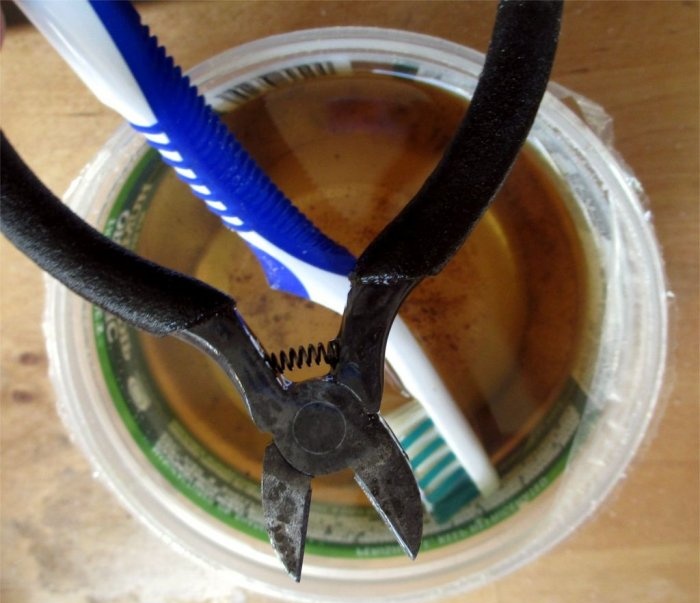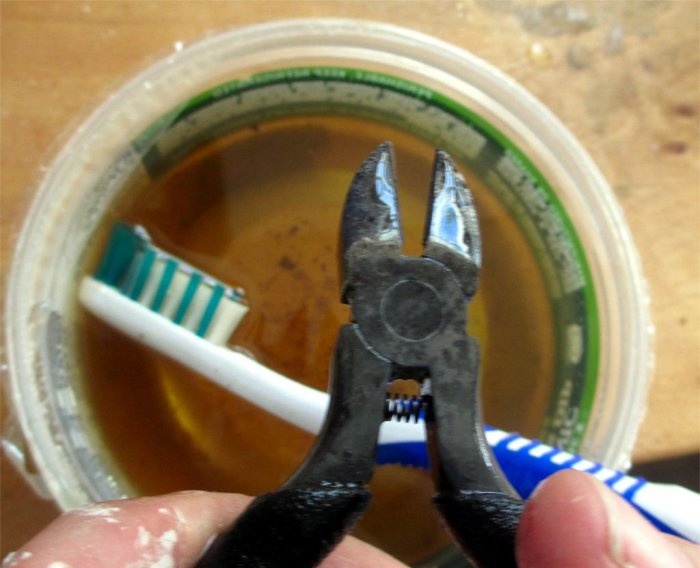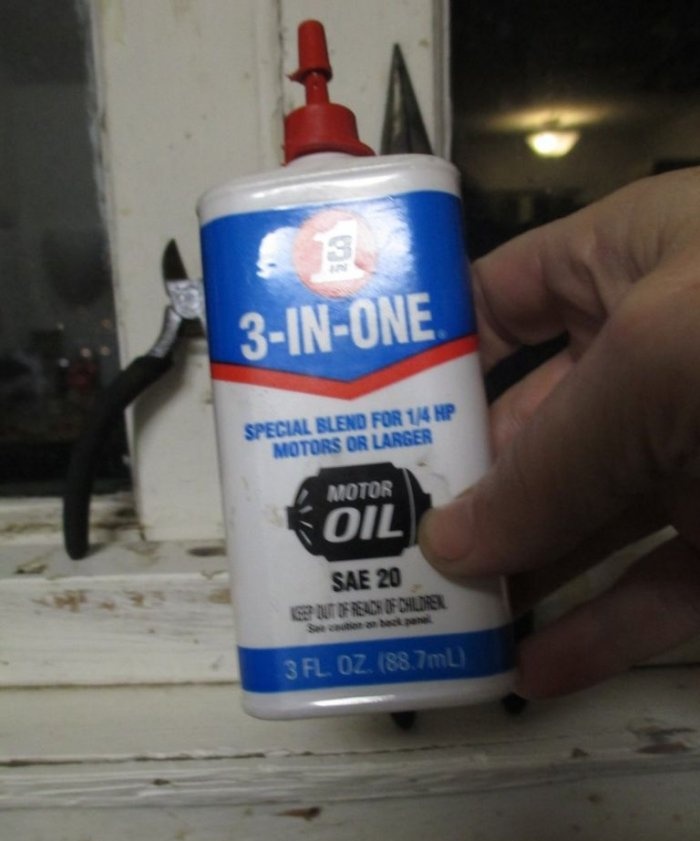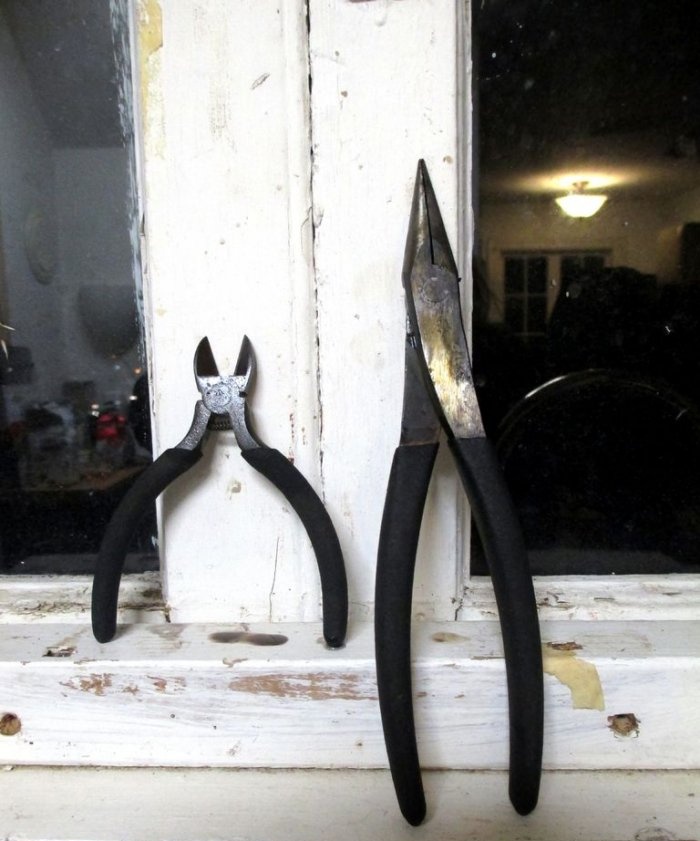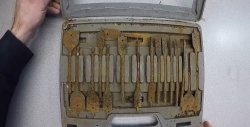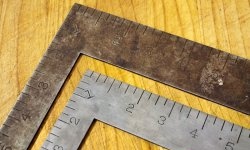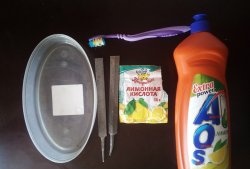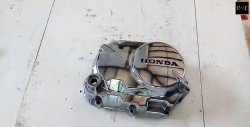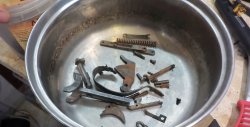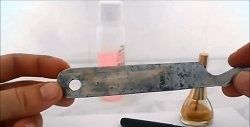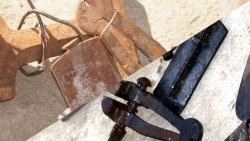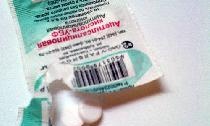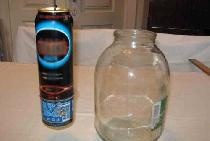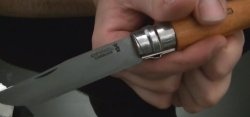How to cheaply restore a rusty tool
Almost always, if any tool is left idle, it begins to rust. You just have to leave the pliers or wire cutters in an unheated room for one winter and in the spring you can see a layer of red rust on the surface. I will show you a cheap and effective method to remove all corrosion and partially restore the surface of the metal. This does not require expensive or scarce materials.
You will need:
- Vinegar 9% (I took apple cider vinegar, that’s why it’s brown; if you have it, take regular colorless vinegar).
- Edible salt (regular, table salt).
- Unnecessary toothbrush.
- A container in which, if possible, the entire tool to be restored can be immersed. Definitely made of plastic.
- Motor oil of absolutely any brand.
Rust removal and surface restoration process
In my case, we will restore with wire cutters and pliers with thin jaws. As you can see, the wire cutters have been lying around for many years and seem to be hopelessly damaged. We place the instruments in the vessels.
Pour vinegar until the surface of the metal is completely covered.
Now take salt and sprinkle it generously on the rust.
I did not completely immerse the wire cutters, since their handles are protected by a rubber sheath.
We leave everything for a day. At this time, a chemical reaction will take place.
After time, you will see flakes of rust floating on the surface of the solution.
Take out the tool and use a toothbrush to remove any traces of corrosion and reaction marks.
Try working with the tool. The first 2-3 movements may be difficult, but then everything should be easy.
If you are not satisfied with the result, repeat the procedure and leave to soak for another day.
As you can see, the pliers and wire cutters have acquired a completely working appearance.
Now they need to be lubricated. Take any motor oil, dip a rag and treat the exposed metal surface.
The well-known WD-40 is also good for lubrication. Spray onto the surface and wipe with a rag to remove excess.
The method is not very complicated, but quite effective. Personally, this is not the first time I have used this and am pleased with the result.
Original article in English
Similar master classes
Particularly interesting
Comments (17)

